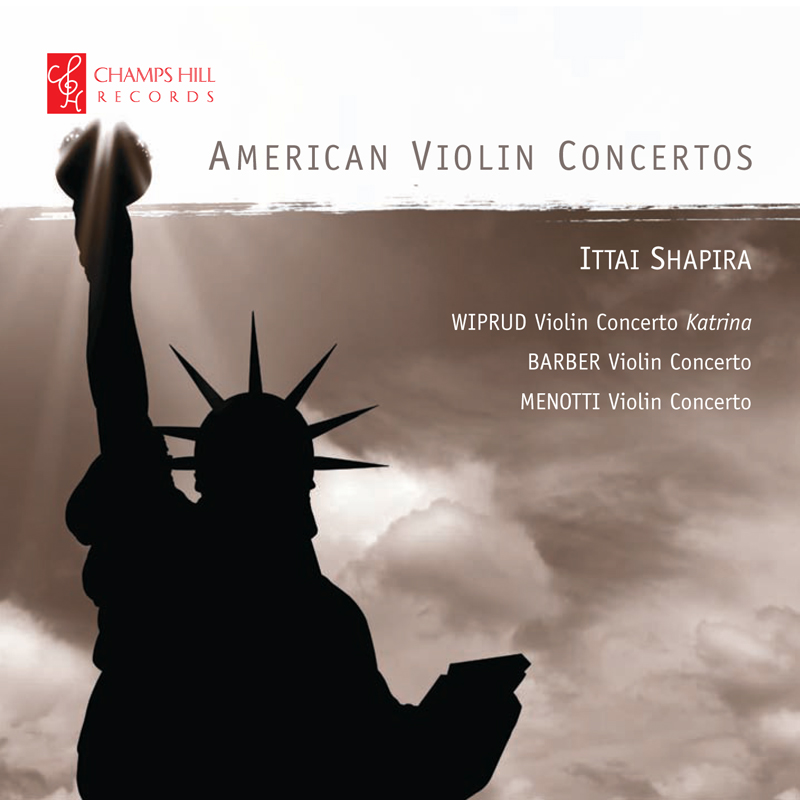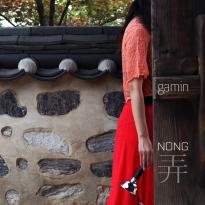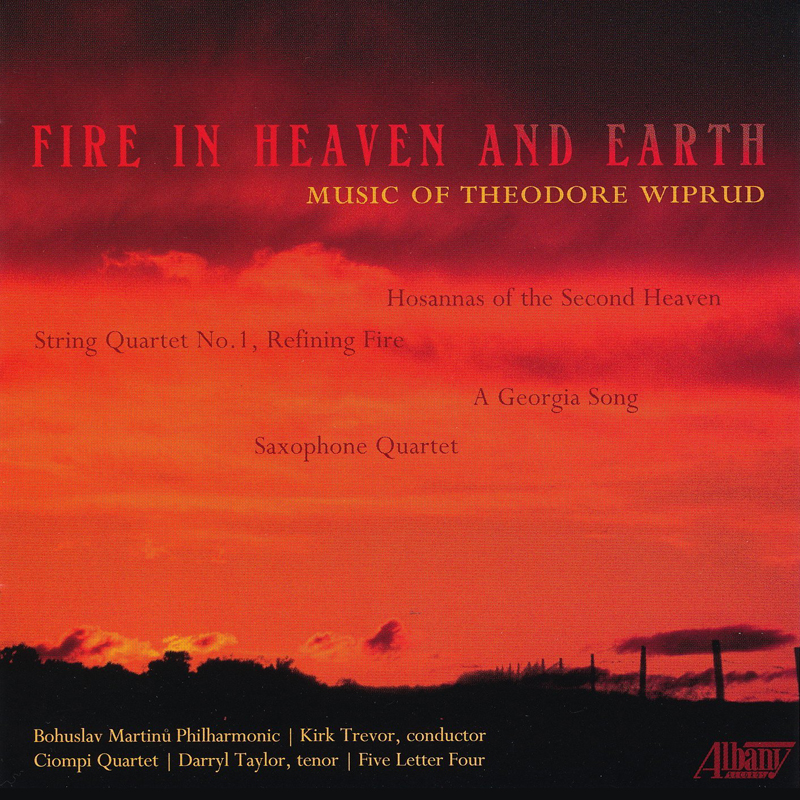Feature Press, Articles & Critic Reviews
What composer Theodore Wiprud does best is capture the soul of 21st-century America.”
—Jean-Yves Duperron
Classical Music Sentinel »
The programmatic element is present in Wiprud’s concerto from the opening: the violin first appears playing very angular chords and a lyrical yet syncopated melody, with the rhythmic intensity of those opening chords continuing through the movement in tandem with an orchestral landscape in which jazz elements are beautifully presented while also containing a continuously escalating sense of foreboding… As Mr. Corigliano’s Symphony [No. 1, “Of Rage and Remembrance”] has remained a staple in concert halls throughout the United States, Wiprud’s Violin Concerto is worthy of a permanent place on the concert stage as it is truly an American work both in content and inspiration.
—Samuel Thompson
Blogspot »
An evening of one-act operas [including My Last Duchess] that proudly luxuriate in the spirit of the Renaissance.”
—Zachary Woolfe
The New York Times »
Composers attempted to express emotions contained in each line, even in individual words of a celebrated poem. Now Wiprud succeeds in this mission illuminated by Browning. A through-composed dramatic monologue is a perfect vehicle for a one-act opera. While familiar airs, often material for the traditional madrigal, are not used in My Last Duchess, lilting melodies and counterpoint are elaborated. Wiprud has given instrumental color an important role throughout. The chamber orchestra was awash in distinctive sounds.”
—Susan Hall
Berkshire Fine Arts »
The centerpiece of the evening was the world premiere of Theodore Wiprud’s Violin Concerto (Katrina), a work written at the request of Ittai Shapira . . . As conductor Lucas Richman began, it was immediately obvious that Wiprud’s musical lens is one that fractures the familiar into unfamiliar bits and pieces and reassembles them in quite different musical shapes and tonalities. The result was analogous to a pointillist painting in which scenes are broken up into fundamental structural elements and completeness can only be glimpsed at a distance. What we saw at a distance was an orchestral construction that was extremely intriguing and satisfying in its tonal complexity. The line between percussion and non-percussion instruments often blurred, creating persistent residual impressions of literal atmospheric quality. Woodwind and brass tone punctuated moments of action and substance, while the strings made sudden announcements of drama. It was in this harmonic depiction of chaos alternating with calm that the work succeeded brilliantly. . . .”
—Alan Sherrod
Metro Pulse »
I was trying to find something that would express a sentiment of giving, some quiet reflection to the loss of our contemporaries, and appreciation for their lives . . . What I aim to do is something very simple, moving in a simple way.”For a biochemistry concentrator, Theodore Wiprud ’80 has given new meaning to the concepts of labs and experiments.
Currently the Director of Education for the New York Philharmonic and a self-published composer, Wiprud’s foray into music has him experimenting with composition, educational projects, and more recently, E major for the Class of 1980 memorial service.
While listening to the Pulitzer Prize-winning piece “Tempest Fantasy,” by Paul Moravec ’79, at last year’s reunion, Wiprud says he wondered how he could participate musically to his own reunion. After getting in touch with the reunion committee, he was asked to compose the music for the class’s memorial service.
“That really appealed to me because the memorial service is really a tremendous part of the reunion,” Wiprud says. “It’s about the only time of sober reflection, and it’s a chance to try to do something musically that isn’t only light.”
Wiprud says he decided to create something special that would be sung by a choir, so he knew his composition would have to be easy to arrange, with a text that would allow different religions to relate to it.
He settled on “Lux Aeterna,” a section from the “Requiem Mass.” Although Wiprud’s chosen text is traditionally Christian, he says it has interfaith qualities.
[Hosannas Of The Second Heaven] kept the audience in the kind of high state of excitement that may exist in Paradise for those of us lucky enough to get there.”—The Greenfield Recorder
That’s what gave the concert . . . its intellectual zing. Bringing together works that expressed faith without words, this was as non-New York a concert as I’d heard in years—quiet, meditative, sans applause, the pieces linked via narration by NPR’s Ellen Kushner—and it traveled a cross-continental range of spiritualities . . . Can music elicit spiritual response? Can it depict the experiences on which faith is based? Assuming it can do either, which is more valuable? Or do we need both, at different times and for different religions? Such questions would be well worth pursuing in future, similar concerts.”
—Kyle Gann
“Why Was ‘Beyond Words‘ Different From All Other New York Concerts?”
“A Life In Composition,” The Village Voice »
Reviews from Performers
A Georgia Song is destined to set a high standard for American vocal music. Its blending of classical and popular ideals is the long-awaited manifestation of American Nationalism.”
—Darryl Taylor, founder
African-American Art Song Alliance
The Amherst Saxophone Quartet has had as much fun performing subsequent concerts of Theodore Wiprud’s Saxophone Quartet as we did playing the complete premiere of this major new work. It is a work of substance, rewarding to perform, and warmly received by audiences. We recommend including it in what is becoming the standard repertory for saxophone quartet.”
—Stephen Rosenthal
Amherst Saxophone Quartet





